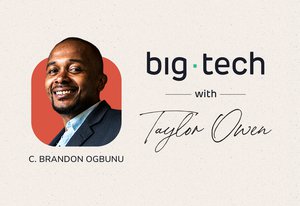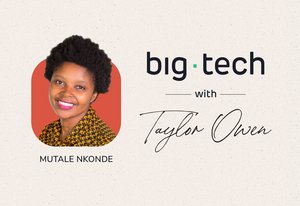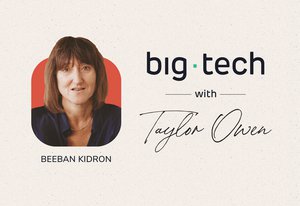Episode Description
In the history of computers and the internet, a few names likely come to mind: Alan Turing, Tim Berners-Lee, Bill Gates and Steve Jobs. Undoubtedly, these men’s contributions to computer sciences have shaped much of our modern life. In the case of Jobs and Gates, their financial success shifted the landscape of software development and the metrics of success in Silicon Valley. Some sectors of the industry, such as programming, hypertext and databases, had been dominated by women in the early days, but once those areas became economic drivers, men flooded in, pushing aside the women. In the process, many of their contributions have been overlooked.
In this episode of Big Tech, host Taylor Owen speaks with Claire L. Evans, a musician, internet historian and author of Broad Band: The Untold Story of the Women Who Made the Internet. Evans’s book chronicles the work of women involved in creating the internet but left out of its history.
Owen and Evans reflect on several important milestones of the early internet where women were innovating in community building and the moderation of message boards. Evans reveals a little-known history of the early web and the women involved. One aspect that stands out is how the projects that women led focused on building trust with users and the production of knowledge rather than the technical specifications of microprocessors or memory storage. Today, in the face of online harms, misinformation, failing institutional trust and content moderation challenges, there is a great deal we can learn from the work women were already doing decades ago in this space.



